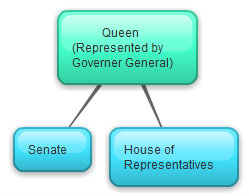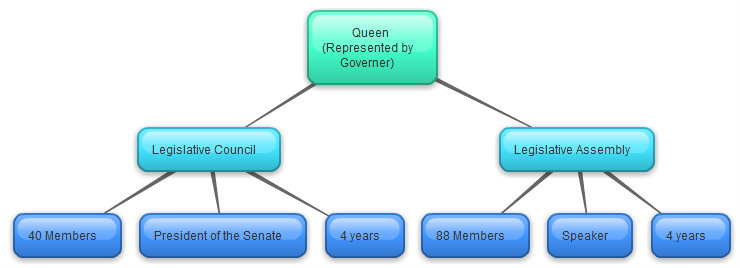Cards In This Set
| Front | Back |
|
Describe the structure of the Commonwealth Parliament
|
 - Constitutional Monarchy / Representative Democracy - Bi Cameral |
|
Describe the structure of the Victorian Parliament
|
 . |
|
Discuss the role of the upper house
|
States House: Each state has 12 senators regardless of size. Ensures laws are in the best interest of the community
House of Review: Reviews bills. Reject / amend. Ensures changes are not too radical |
|
Explain why the senate can sometimes be nothing more than a "rubber stamp"
|
The senate simply signs off legislation without seriously reviewing it
Vote along party lines Majority elected belong to a political party. |
|
Discuss the role of the lower house
|
 . |
|
Discuss the role of the crown
|
 . |
|
Explain the principle of 'responsible government'
|
Government is answerable to parliament and therefore the people.
Act fairly and responsibly Question time Public scrutiny Government chosen through support in the lower house Loses support must resign Doctrine of Ministerial Responsibility: Ministers are responsible for their actions and their departments actions (portfolios) |
|
Explain the principle of 'representative government'
|
Government elected by the people for the people through regular elections Fail to represent peoples wishes --> kicked out at election time.
Members of the lower house are democratically elected to represent areas with approx 90 000 voters Represent views and opinions of the majority of the people. |
|
What is the doctrine of the separation of powers?
|
For our legal / political systems to be effective, three different branches of power held by the commonwealth must be separated. Defined in constitution Legislative power (parliaments power to make laws) Includes crown, upper house / lower house.
Executive power (power to administer laws / affairs of state) Crown, executive council Judiciary: enforce and interpret laws |
|
Why is the separation of powers important?
|
No one body has total control / power
Corruption / abuse of power can be avoided Judges ---> political pressure ---> legal system eroded Each branch check up on each other |



